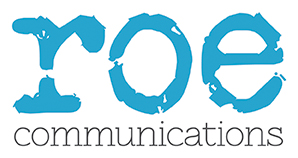What’s the secret to successful business school media relations? Many people would say that it’s about crafting compelling media pitches, having strong journalist contacts or a star spokesperson.
Doubtless, all of these are great assets in your media relations toolkit.
But what doesn’t often get mentioned is consistency.
Why is this? Well, let’s be honest – consistency feels a bit humdrum. Especially compared to the excitement of coming up with stories for your business school.
Yet, what happens if you don’t have consistency in your media relations programme?
Let’s imagine for a moment that a business school has had a lot to say to the media recently. In one month, they’ve put out a press release weekly. They’ve also pitched interviews with the Dean to multiple journalists and they’ve had some press coverage.
Great!
And then the next month comes around…and there are no obvious news stories coming out of the school. There could be multiple reasons for this. For example, faculty being on holiday or the fact that there are no new research reports scheduled for that month. Or that multiple partners in an announcement means that it is delayed.
One or two months like this probably won’t do your overall reputation too much harm. But, long-term, it’s likely that your press coverage will start to decline. Requests from journalists will dry up and people will be unclear about what you offer.
The truth is that a stop-start media relations programme won’t do your school any favours.
Why?
Journalists will go elsewhere
No matter how strong your journalist relationships are or have been, the media is a fast-paced environment. This has only been exacerbated by COVID-19. Journalists are still having to source their information remotely – and stories are taking longer to produce.
Unfortunately, there’s no guarantee that you will be front-of-mind when they are preparing a story.
Your audience will get mixed messages
Consistency is not all about a regular flow of stories – it’s also about consistency of message.
If you hop from one story to another, then it won’t be clear to your outside audience about what you offer or what you stand for.
Your competitors will fill the gap
We don’t need to tell you that the COVID-19 pandemic has presented massive challenges for business school recruitment. One of the big changes is that the visibility of EdTech competitors is much higher and everyone is fighting for airtime.
Be assured that if you are not regularly communicating with the media, your competitors most certainly are. If you have an inconsistent programme, you could fall behind in terms of awareness and share of voice very quickly.
Online awareness and engagement will be weaker
Amplifying your press content on social media channels is an effective way of increasing engagement and driving people to your website. It’s also a powerful tool to improve your SEO by increasing backlinks from external sites.
Without press coverage, you may end up having to spend time and effort creating other types of content. This may be fine – if you have the resources.
But perhaps more importantly, it means that you are missing out on the chance to reach untapped audiences. And on third-party endorsement – which is highly influential for potential applicants.
A better strategy for business school media relations
Building reputation is a long-term game and it takes regular, consistent activity to achieve strong visibility in the media. Don’t assume that the media will automatically reach out to you.
Having regular contact with journalists and pitching strong, newsworthy angles, will improve the chances of them covering you or coming to your school for comment.
We wouldn’t advocate plying journalists with non-news. However, being prepared for slow months and pro-actively creating new contacts or media opportunities is vital.
Instead of waiting for news stories to come to you, it’s a good idea to consider how you are going to fill those gaps. This could include trying different types of content (such as alumni case studies). It could mean targeting different (but relevant) media outlets, or pitching opinion pieces.
It’s also about making sure that you are putting out consistent messages. These should focus on your school’s strengths and what you want to be known for.
If you think that you would benefit from a more consistent media relations programme, click HERE for more insights or sign up to our emails.


